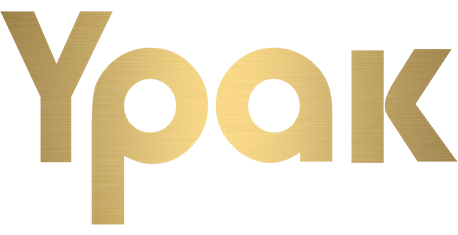Global TOP 5 packaging maker
•1、nternational Paper
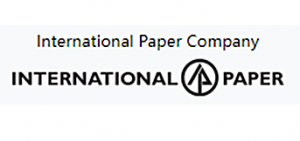
International Paper is a paper and packaging industry company with global operations. The company's businesses include uncoated papers, industrial and consumer packaging and forest products. The company's global headquarters is located in Memphis, Tennessee, USA, with approximately 59,500 employees in 24 countries and customers all over the world. The company's net sales in 2010 were US$25 billion.
On January 31, 1898, 17 pulp and paper mills merged to form the International Paper Company in Albany, New York. In the company's early years, International Paper produced 60% of the paper needed by the U.S. journalism industry, and its products were also exported to Argentina, the United Kingdom, and Australia.
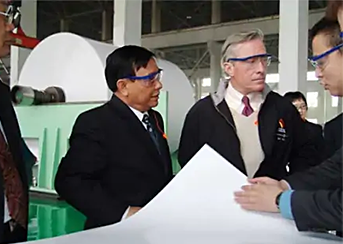
International Paper's business operations cover North America, Latin America, Europe including Russia, Asia and North Africa. Founded in 1898, International Paper is currently the world's largest paper and forest products company and one of only four listed companies in the United States with a century-old history. Its global headquarters is located in Memphis, Tennessee, USA. For nine consecutive years, it has been named the most respected company in the forest products and paper industry in North America by Fortune magazine. It has been named one of the world's most ethical companies by Ethisphere magazine for five consecutive years. In 2012, it ranked 424th on the Fortune Global 500 list.
International Paper's operations and employees in Asia are very diverse. Operating in nine countries in Asia, speaking seven languages, with more than 8,000 employees, it manages a large number of packaging plants and paper machine lines, as well as an extensive purchasing and distribution network. The Asia headquarters is located in Shanghai, China. International Paper Asia's net sales in 2010 amounted to approximately US$1.4 billion. In Asia, International Paper is committed to being a good citizen and actively assuming social responsibilities: participating in holiday donation projects, setting up university scholarships, participating in tree planting projects to reduce carbon footprint, etc.
International Paper's products and International Paper's production processes attach great importance to environmental protection. International Paper is committed to maintaining sustainable development, and all products are third-party certified including the Sustainable Forestry Action Plan, the Forestry Stewardship Council and the Forest Certification System Recognition Program. International Paper's commitment to the environment is achieved by managing natural resources, reducing environmental impact and establishing strategic partnerships.

•2、Berry Global Group, Inc.
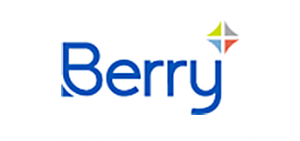
Berry Global Group, Inc. is a Fortune 500 global manufacturer and marketer of plastic packaging products. Headquartered in Evansville, Indiana, with more than 265 facilities and more than 46,000 employees worldwide, the company had fiscal 2022 revenue of more than $14 billion and is one of the largest Indiana-based companies listed in Fortune Magazine ranking. The company changed its name from Berry Plastics to Berry Global in 2017.
The company has three core divisions: Health, Hygiene and Professional;Consumer Packaging; and Engineered Materials. Berry claims to be the world leader in manufacturing aerosol caps and also offers one of the broadest ranges of container products. Berry has more than 2,500 customers, including companies such as Sherwin-Williams, Borden's, McDonald's, Burger King, Gillette, Procter & Gamble, PepsiCo, Nestlé, Coca-Cola, Walmart, Kmart and Hershey Foods.
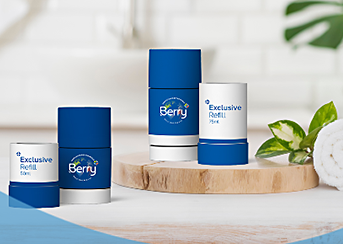
In Evansville, Indiana, a company called Imperial Plastics was founded in 1967. Initially, the plant employed three workers and used an injection molding machine to produce aerosol caps (Berry Global in Evansville employed more than 2,400 people in 2017). The company was acquired by Jack Berry Sr. in 1983. In 1987, the company expanded for the first time outside of Evansville, opening a second facility in Henderson, Nevada.
In recent years, Berry has completed several acquisitions, including Mammoth Containers, Sterling Products, Tri-Plas, Alpha Products, PackerWare, Venture Packaging, Virginia Design Packaging, Container Industries, Knight Engineering and Plastics, Cardinal Packaging, Poly-Seal, Landis Plastics , Euromex Plastics SA de CV, Kerr Group, Covalence Specialty Materials (formerly Tyco Plastics & Adhesives business), Rollpak, Captive Plastics, MAC Closures, Superfos and Pliant Corporation.
Headquartered in Chicago Ridge, IL, Landis Plastics, Inc. supports customers in North America with five domestic facilities producing injection molded and thermoformed plastic packaging for dairy and other food products. Prior to being acquired by Berry Plastics in 2003, Landis experienced strong organic sales growth of 10.4% over the past 15 years. In 2002, Landis generated net sales of $211.6 million.
In September 2011, Berry Plastics acquired 100% of the equity capital of Rexam SBC for a total purchase price of $351 million (net of $340 million in cash acquired), financing the acquisition with cash on hand and existing credit facilities. Rexam manufactures rigid packaging, specifically plastic closures, accessories and dispensing closure systems, as well as jars. The acquisition was accounted for using the purchase method, with the purchase price allocated to identifiable assets and liabilities based on their estimated fair value on the acquisition date. In July 2015, Berry announced plans to acquire Charlotte, North Carolina-based AVINTIV for $2.45 billion in cash.
In August 2016, Berry Global acquired AEP Industries for US$765 million.
In April 2017, the company announced that it would change its name to Berry Global Group, Inc. In November 2017, Berry announced the acquisition of Clopay Plastic Products Company, Inc. for US$475 million. In August 2018, Berry Global acquired Laddawn for an undisclosed amount. In July 2019, Berry Global acquired RPC Group for US$6.5 billion. In total, Berry's global footprint will span more than 290 locations around the world, including locations in North and South America, Europe, Asia, Africa, Australia and Russia. The combined business is expected to employ more than 48,000 people on six continents and generate sales of about $13 billion, according to the latest financial statements released by Berry and RPC.
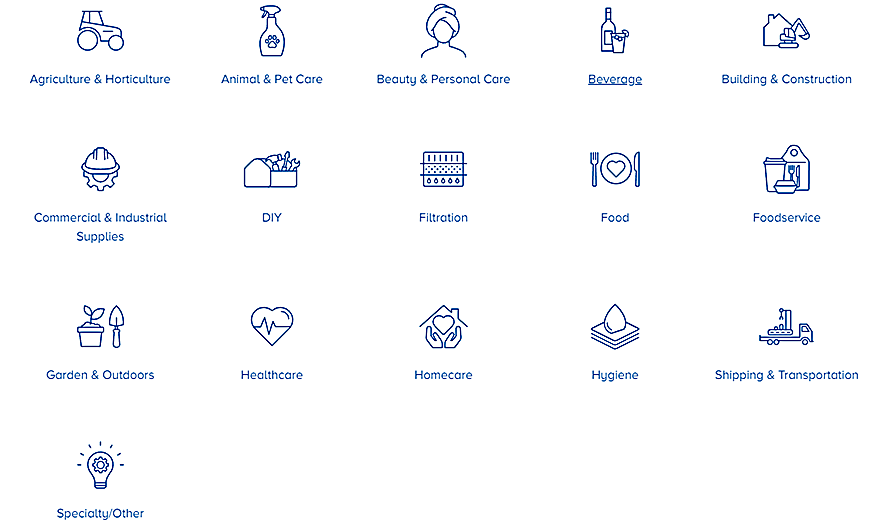
•3、Ball Corporation
Ball Corporation is an American company headquartered in Westminster, Colorado. It is best known for its early production of glass jars, lids, and related products used for home canning. Since its founding in Buffalo, New York, in 1880, when it was known as the Wooden Jacket Can Company, the Ball company has expanded and diversified into other business ventures, including aerospace technology. It eventually became the world's largest manufacturer of recyclable metal beverage and food containers.
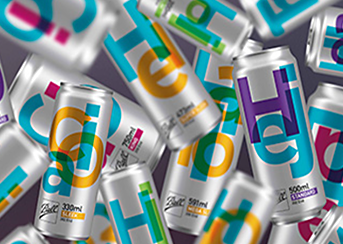
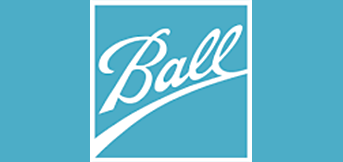
The Ball brothers renamed their business the Ball Brothers Glass Manufacturing Company, incorporated in 1886. Its headquarters, as well as its glass and metal manufacturing operations, were moved to Muncie, Indiana, by 1889. The business was renamed the Ball Brothers Company in 1922 and the Ball Corporation in 1969. It became a publicly traded stock company on the New York Stock Exchange in 1973.
Ball left the home canning business in 1993 by spinning off a former subsidiary (Alltrista) into a free-standing company, which renamed itself Jarden Corporation. As part of the spin-off, Jarden is licensed to use the Ball registered trademark on its line of home-canning products. Today, the Ball brand for mason jars and home canning supplies belongs to Newell Brands.
For over 90 years, Ball continued to be a family-owned business. Renamed the Ball Brothers Company in 1922, it remained well known for manufacturing fruit jars, lids, and related products for home canning. The company also entered into other business ventures. Because the four main components of their core product line of canning jars included glass, zinc, rubber, and paper, the Ball company acquired a zinc strip rolling mill to produce metal lids for their glass jars, manufactured rubber sealing rings for the jars, and acquired a paper mill to fabricate the packaging used in shipping their products. The company also acquired tin, steel, and later, plastic companies.
The Ball Corporation has made improvements to its environmental record since 2006, when the company began its first formal sustainability efforts. In 2008 the Ball Corporation issued its first sustainability report and began releasing subsequent sustainability reports on its website. The first report was an ACCA- Ceres North American Sustainability Awards cowinner of the Best First Time Reporter award in 2009.
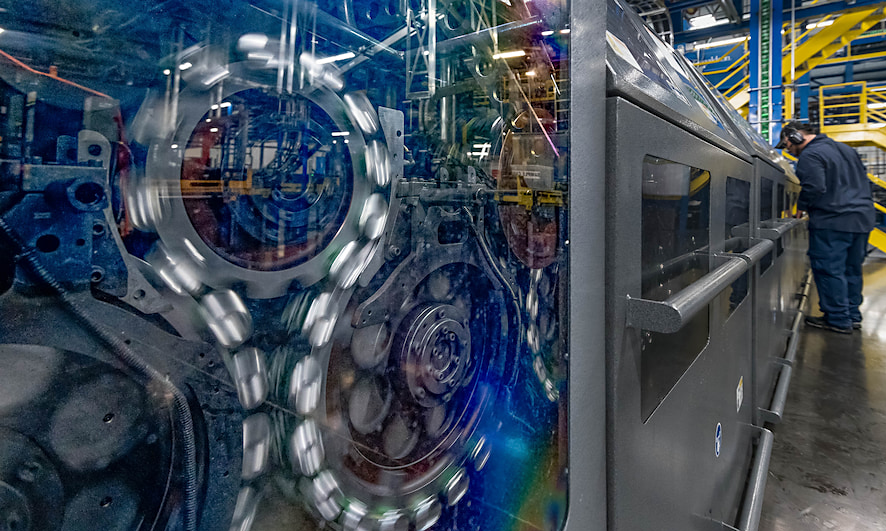
•4、Tetra Pak International SA
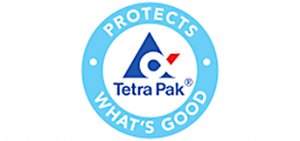
Wholly Owned Subsidiary of Groupe Tetra Laval
Incorporated: 1951 as AB Tetra Pak
Tetra Pak International SA makes laminated containers such as juice boxes. For decades identified with its unique tetrahedral dairy packaging, the company’s product line has grown to include hundreds of diverse containers. It is a leading supplier of plastic milk bottles. With its sister companies, Tetra Pak claims to be the only provider of complete systems for processing, packaging, and distributing liquid foodstuffs worldwide. Tetra Pak products are sold in more than 165 countries. The company describes itself as a partner in developing its client’s concepts rather than as a mere vendor. Tetra Pak and its founding dynasty have been notoriously secretive about profits; parent company Tetra Laval is controlled by the family of Gad Rausing, who died in 2000, through Netherlands-registered Yora Holding and Baldurion BV. The company reported 94.1 billion packages sold in 2001.
Origins
Dr. Ruben Rausing was born on June 17, 1895 in Raus, Sweden. After studying economics in Stockholm, he went to America in 1920 for graduate studies at New York’s Columbia University. There, he witnessed the growth of self-service grocery stores, which he believed would soon be coming to Europe, along with a heightened demand for packaged foods. In 1929, with Erik Akerlund, he established the first Scandinavian packaging company.
Development of a new milk container began in 1943. The goal was to provide optimal food safety while using a minimum amount of material. The new containers were formed from a tube that was filled with liquid; individual units were sealed off below the level of the beverage inside without introducing any air. Rausing reportedly got the idea from watching his wife Elizabeth stuffing sausages. Erik Wallenberg, who joined the firm as a lab worker, is credited with engineering the concept, for which he was paid SKr 3,000 (six months of wages at the time).
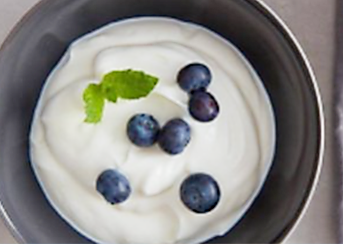
Tetra Pak was founded in 1951 as a subsidiary of Akerlund & Rausing. The new packaging system was unveiled on May 18 of that year. The next year, it delivered its first machine for packaging cream in tetrahedral cartons to Lundaortens Mejerifõrening, a dairy in Lund, Sweden. The 100 ml container, which was covered in plastic rather than paraffin, would be named Tetra Classic. Before this, European dairies typically dispensed milk in bottles or in other containers brought by customers. Tetra Classic was both hygienic and, with individual servings, convenient.
The firm continued to focus exclusively on beverage packaging for the next 40 years. Tetra Pak introduced the world’s first aseptic carton in 1961. It would become known as Tetra Classic Aseptic (TCA). This product was different in two important ways from the original Tetra Classic. The first was in the addition of a layer of aluminum. The second was that the product was sterilized at a high temperature. The new aseptic packaging allowed milk and other products to be kept several months without refrigeration. The Institute of Food Technologists called this the most important food packaging innovation of the century.
Building with a Erik in the 1970s-80s
Tetra Brik Aseptic (TBA), a rectangular version, debuted in 1968 and sparked dramatic international growth. The TBA would account for most of Tetra Pak’s business into the next century. Borden Inc. brought Brik Pak to U.S. consumers in 1981 when it began using this packaging for its juices. At the time, Tetra Pak’s worldwide revenues were SKr 9.3 billion ($1.1 billion). Active in 83 countries, its licensees were putting out more than 30 billion containers a year, or 90 percent of the aseptic package market, reported Business Week. Tetra Pak claimed to pack 40 percent of Europe’s dairy packaging market, reported Britain’s Financial Times. The company had 22 plants, three of them for making machinery. Tetra Pak employed 6,800 people, about 2,000 of them in Switzerland.
Tetra Pak’s ubiquitous coffee-cream packages, often seen at restaurants, were by then only a small portion of sales. The Tetra Prisma Aseptic carton, eventually adopted in more than 33 countries, would become one of the company’s greatest successes. This octagonal carton featured a pull-tab and a range of printing possibilities. Tetra Fino Aseptic, launched in Egypt, was another successful innovation of the same time period. This inexpensive container consisted of a paper/polyethylene pouch and was used for milk. Tetra Wedge Aseptic first appeared in Indonesia. Tetra Top, introduced in 1991, had a resealable plastic top.
We commit to making food safe and available, everywhere. We work for and with our customers to provide preferred processing and packaging solutions for food. We apply our commitment to innovation, our understanding of consumer needs, and our relationships with suppliers to deliver these solutions, wherever and whenever food is consumed. We believe in responsible industry leadership, creating profitable growth in harmony with environmental sustainability, and good corporate citizenship.
Gad Rausing died in 2000, leaving ownership of the Tetra Laval empire to his children—Jorn, Finn, and Kristen. When he sold his share of the company to his brother in 1995, Hans Rausing also agreed not to compete with Tetra Pak until 2001. He emerged from retirement backing a Swedish packaging company, EcoLean, devoted to a new biodegradable “Lean-Material” made primarily of chalk. Rausing acquired a 57 percent stake in the venture, which had been formed in 1996 by Ake Rosen.
Tetra Pak continued to introduce innovations. In 2002, the company launched a new high-speed packaging machine, the TBA/22. It was capable of packaging 20,000 cartons an hour, making it the fastest in the world. Under development was the Tetra Recart, the world’s first carton able to be sterilized.
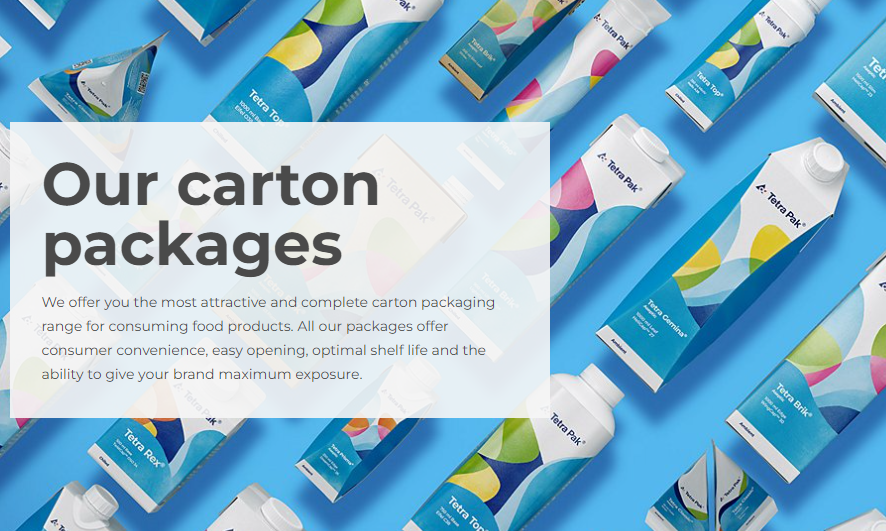
•5、Amcor
•5、Amcor
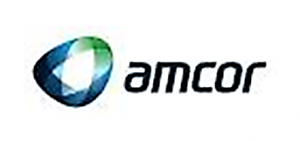
Amcor plc is a global packaging company. It develops and produces flexible packaging, rigid containers, specialty cartons, closures and services for food, beverage, pharmaceutical, medical-device, home and personal-care, and other products.
The company originated in paper milling businesses established in and around Melbourne, Australia, during the 1860s which were consolidated as the Australian Paper Mills Company Pty Ltd, in 1896.
Amcor is a dual-listed company, being listed on the Australian Securities Exchange (ASX: AMC) and New York Stock Exchange (NYSE: AMCR).
As of 30 June 2023, the company employed 41,000 people and generated US$14.7 billion in sales from operations in some 200 locations in over 40 countries.
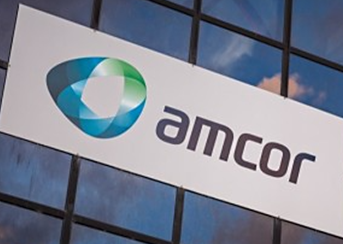
Reflecting its global status, Amcor is included in several international stock market indices, including the Dow Jones Sustainability Index, CDP Climate Disclosure Leadership Index (Australia), the MSCI Global Sustainability Index, the Ethibel Excellence Investment Register, and the FTSE4Good Index Series.
Amcor has two reporting segments: Flexibles Packaging and Rigid Plastics.
Flexibles Packaging develops and supplies flexible packaging and specialty folding cartons. It has four business units: Flexibles Europe, Middle East and Africa; Flexibles Americas; Flexibles Asia Pacific; and Specialty Cartons.
Rigid Plastics is one of the world's largest suppliers of rigid plastic packaging.[8] It has four business units: North America Beverages; North America Specialty Containers; Latin America; and Bericap Closures.
Amcor develops and produces packaging for use with snacks and confectionery, cheese and yoghurt, fresh produce, beverage and pet food products, and rigid-plastic containers for brands in the food, beverage, pharmaceutical, and personal and home-care segments.
The company's global pharmaceutical packaging addresses requirements for unit doses, safety, patient compliance, anti-counterfeiting and sustainability.
Amcor's specialty cartons made from plastic materials are used for a variety of end markets, including pharmaceutical, healthcare, food, spirits and wine, personal and home-care products. Amcor also develops and makes wine and spirit closures.
In February 2018, the company commercialized its Liquiform technology, which uses the packaged product instead of compressed air to simultaneously form and fill plastic containers and eliminates costs associated with traditional blow-molding, as well as handling, transporting, and warehousing empty containers.
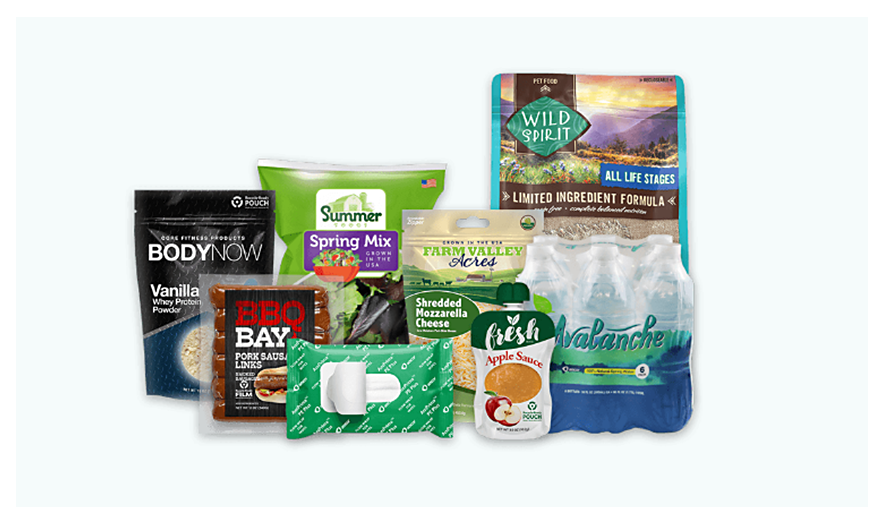
YPAK Packaging is located in Guangdong, China. Founded in 2000, it is a professional packaging company with two production plants. We are committed to becoming one of the world's top packaging suppliers. In order to meet the needs of mass customization customers, we use large roller plates. This makes the colors of our products more conspicuous and the details more vivid; during this period, there were many customers with small ordering needs. We introduced the HP INDIGO 25K digital printing press, which enabled our MOQ to be 1000pcs and also satisfied a range of designs. customer customization needs. In terms of the production of special processes, the ROUGH MATTE FINISH technology proposed by our R&D engineers ranks among the top 10 in the world. In an era when the world is calling for sustainable development, we have launched recyclable/compostable material packaging and can also provide our Certificate of conformity after the product is sent to an authoritative agency for testing. Welcome to contact us at any time, YPAK is at your service 24 hours a day.
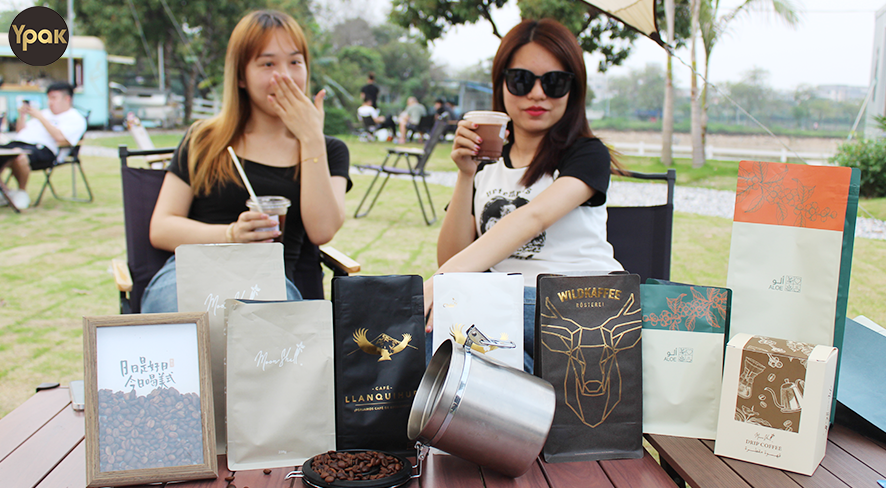
Post time: Nov-09-2023
